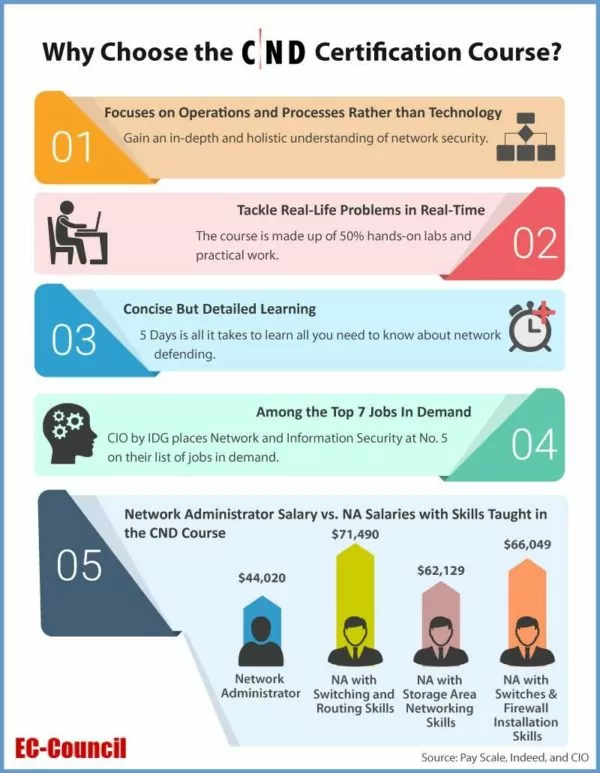Cyber defense has become the focus of smart organizations everywhere as they try to ward off the financial and reputational damage that modern hacks can cause. Cyber breaches have increased 1,370% over the past 10 years despite an industry’s worth of best efforts to stay ahead of cyber criminals. In fact, many organizations are still struggling to implement many of the basics of information security.
According to the 2017 Trustwave Global Security Report, it takes an average of 65 days for an organization to detect a breach. Organizations, as a part of their security strategy, should hire certified network engineers who can protect, detect, and respond to threats on their network.
Organizations have a better chance at protecting themselves from malicious outsider and insider attacks with the help of a cyber network defender. Stocked with the right set of skills and competencies, a defensive network administrator will be able to give an organization a better chance at protecting themselves.
A network administrator plays a vital role in an organization’s cybersecurity as they are the first line of defense against a cyber-attack. Their role revolves around the maintenance of a system’s infrastructure, with an emphasis on networking. They are well acquainted with network components, network topology, security policies, network traffic, network performance, and many more. Testing the network for weaknesses, installing security programs, evaluating the implemented network, and monitoring the network for new updates are just a part of what they do.
Through the Certified Network Defender (CND) course, students have the opportunity to learn network security technologies and operations and gain hands-on skills that will provide them with expertise applicable in the real world. The full course comprises the courseware, access to EC-Council’s hands-on iLab environment, 10GB of resources outlining the best practices in network security, assessments, protection tools, and access to many whitepapers.
The CND program focuses on:
- Network security controls
- Protocols
- Devices
- IDS/IPS technologies, tuning, and configurations
- Performing risk assessments, vulnerability assessments, and scanning and generating subsequent reports
- Firewall solutions
- Network topology
- Many other necessary skills to become a successful certified cyber network defender.











